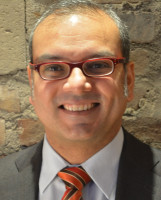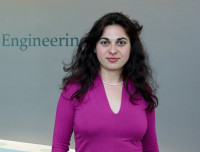Socio-economy & New Tech
Finance
Post-Doctoral Fellowships
Belgium
How can Financial Cooperatives Contribute to a more Sustainable Banking System and Reduce the Exposure of the Economy to Systemic Risks, Risks of Credit Supply Contraction and Intergenerational Risks?
What if banking were treated more like a common good? Could this improve the stability of the financial system? Cooperative banks (CBs), which are not owned by individuals, but by the community of their members, already put these questions to the test—and they do seem to have a positive effect on the system’s overall risk. However, little research has examined what happens within networks of such banks to reduce risk and what effect this has on their efficiency. To fill this gap, Dr. Anaïs Périlleux has been working in partnership with one of Europe’s biggest cooperative banking systems.
After collecting several years’ worth of monthly data on local banks in the network, she was able to extract meaning from the numbers. Dr. Périlleux measured interactions between bank risk-taking, efficiency, and funding received from the top central bank. Her analyses showed that risk-taking and efficiency levels are quite uniform among CBs, thanks to solidarity mechanisms that even things out across the system. Funding from above led to banks taking fewer risks, as well as the mitigation of negative effects on efficiency that any risk-taking might have. Using this information, Dr. Périlleux will now explore the idea of cooperative banks as common goods, which show great resilience in other sectors. If this explains their positive impact on risk in the financial system, it may support the argument for more diversity in bank ownership, with all the policy implications this would have.
After collecting several years’ worth of monthly data on local banks in the network, she was able to extract meaning from the numbers. Dr. Périlleux measured interactions between bank risk-taking, efficiency, and funding received from the top central bank. Her analyses showed that risk-taking and efficiency levels are quite uniform among CBs, thanks to solidarity mechanisms that even things out across the system. Funding from above led to banks taking fewer risks, as well as the mitigation of negative effects on efficiency that any risk-taking might have. Using this information, Dr. Périlleux will now explore the idea of cooperative banks as common goods, which show great resilience in other sectors. If this explains their positive impact on risk in the financial system, it may support the argument for more diversity in bank ownership, with all the policy implications this would have.
Banks As Common Goods For a More Sustainable System?
To add or modify information on this page, please contact us at the following address: community.research@axa.com

Anaïs
PERILLEUX
Institution
Université Catholique de Louvain
Country
Belgium
Nationality
Belgian
Related articles
Socio-economy & New Tech
Financial & Social Inclusion
Finance
Culture & Society
Joint Research Initiative
China
Understanding the Financial Lives of Low Income Households in China
Leveraging financial diaries research methodology, this joint initiative aims to provide actionable insights about the financial lives of low-income households... Read more

Xiugen
MO
Chinese Academy of Financial Inclusion
Socio-economy & New Tech
Finance
Joint Research Initiative
United States
Impact investing in emerging markets: shedding light on the benefits of patient capital
So why the focus on equities, rather than direct investments (which are, by nature, longer term investments)? To answer the... Read more

Satyajit
BOSE
